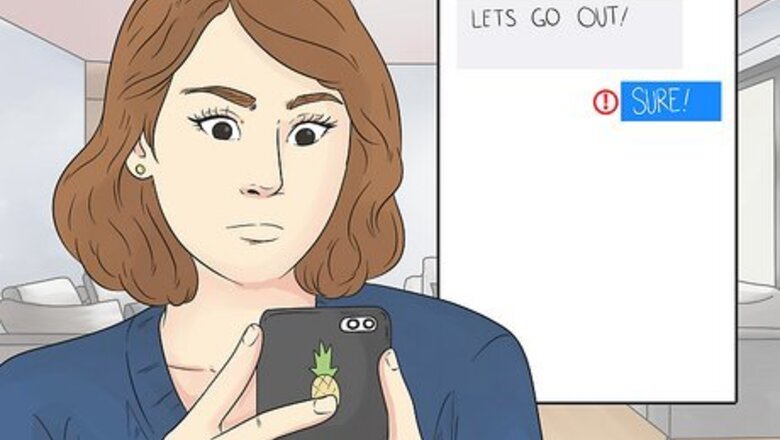
views
Dealing With Your Emotions
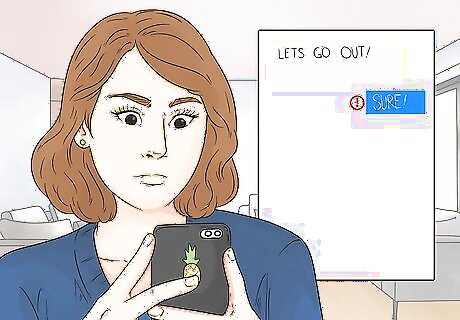
Consider the possibility that it was a mistake. People do not always leave others out on purpose. Sometimes it just happens and it is not meant to make you feel bad. For example, you might have been left out simply because there was a missed communication, such as a lost letter or unsent text message. Or, you might have been left out simply because the person was not thinking clearly and she might feel really sorry for leaving you out.
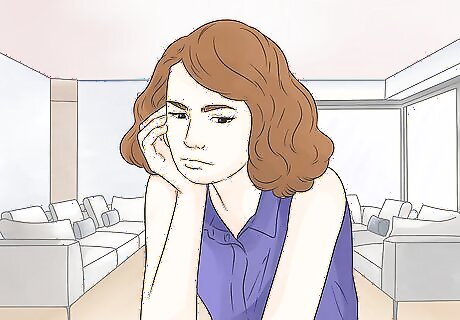
Acknowledge your emotions. Being left out can cause you to feel lots of different negative emotions. For example, you might feel sad at first and then become angry and jealous. These emotions are normal, but they will pass. Instead of denying your emotions, give yourself some time to feel them.
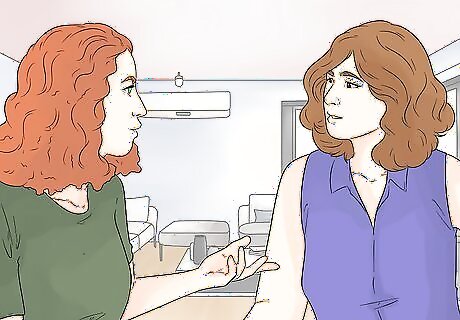
Talk to someone about how you feel. Sharing your feelings with someone who cares about you can be helpful. Try talking to a parent, a good friend, or someone else who you feel that you can trust. Explain what happened and be honest about how it made you feel. The person who you share with may be able to tell you about a time when he or she was left out and may even be able to give you some advice about how to deal with your situation. If being left out has been an ongoing problem or if you are experiencing distress as a result, then you may want to consider talking to mental health professional. If you are still in school, then you can talk to a school counselor. If you are no longer in school, then you can find a therapist.
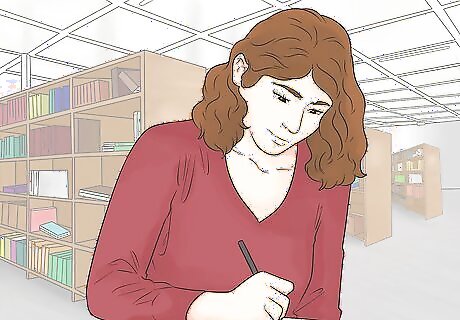
Write about your emotions. Journaling has a wide range of physical and emotional health benefits. It can help you to understand your feelings better, reduce stress, and improve your ability to solve problems. To use journaling to help you deal with being left out, get yourself a journal or notebook and start writing in it for a few minutes every day. Your first entry could be about being left out. You could describe what happened and how it made you feel.
Reacting to the Exclusion
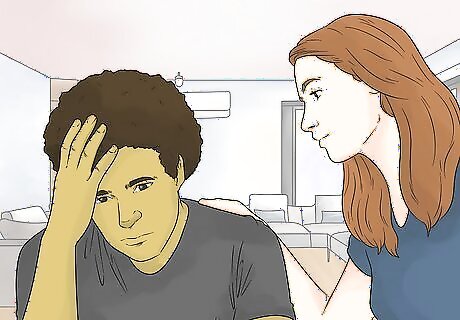
Try to sympathize with those who left you out. Although being left out hurts, it might help you to consider what might be going on with the people who leave you out. Chances are that their decision to leave you out is more about them and their insecurities than it is about you. People who exclude others on purpose probably have some insecurities and biases that are skewing their ability to interact with certain people in a kind way. People who exclude others also want to be in control and they may be leaving you out because they see you as a threat to their control.
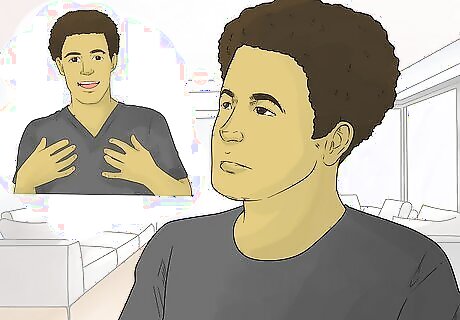
Reframe negative thoughts. Negative thinking is common when something bad happens, such as being left out. However, you can challenge and reframe your negative thoughts to improve the way that you feel. For example, after being left out, you might find that you think to yourself, “Nobody likes me!” Of course, this thought is not true or realistic. It is an overreaction. To reframe this thought, you might change it to something like, “I am a good person and a good friend. The people who really matter in my life enjoy spending time with me.”

Act like you are not upset in front of those who excluded you. If the exclusion was intentional, then it is best to avoid showing your emotions to those who excluded you. Bullies often use exclusion to get a rise out of people, so even if you are upset about being excluded, try not to show it. You may be giving a bully what he wants by showing that you are upset about being excluded. Instead, try to act like you are not bothered by it. For example, if you were not invited to a party or some other social event over the weekend, try telling someone about something fun that you did with your family. If someone mentions the party, then try saying something like, “It sounds like you had fun. That’s awesome! I didn’t know about it, but I was too busy anyways. What else did you do this weekend?”
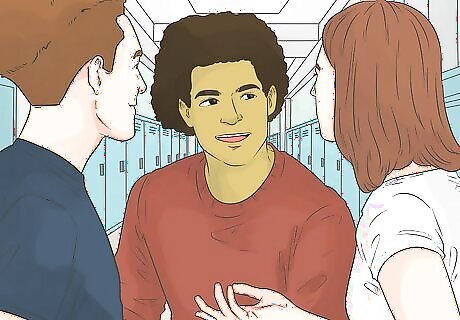
Consider asking what happened. If you think that you were left out by accident or if you are confused about why you were left out, then you might consider talking to the person(s) who left you out. You might find out that it was an honest mistake, or you might have an opportunity to point out to the person that his or her actions were not appropriate. If you think it was a mistake, then try saying something like, “I think there must have been a mistake with your birthday invitations. I did not receive an invite to your birthday party.” If you think that you were left out on purpose, then try saying, “I noticed that I was not invited to your party. It is your party, so you have the right to invite who you want, but I am just curious about why I was not invited.”
Moving On

Forgive the people who excluded you. Forgiveness is more about you than it is about other people. Carrying resentments about people who have hurt your feelings is harmful to your well-being. Therefore, it is beneficial to your happiness and well-being to forgive the people who have hurt you, even if they do not apologize to you. Try writing a letter to the person that you do not send. In the letter, express how being left out made you feel and explain that you want to forgive the person for your own benefit.
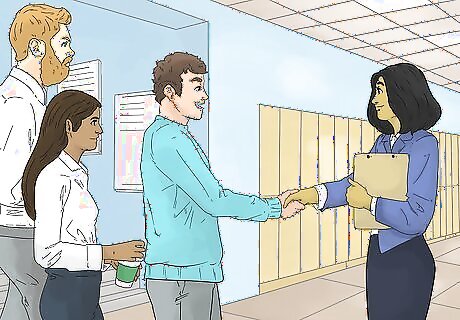
Look for inclusion elsewhere. If a group of people have been excluding you on a regular basis, then it may be time to look for some new friends. Real friends do not exclude you. Look for people who will appreciate you for who you are and who will not do things to hurt your feelings, such as leaving you out. Try joining a special interest club or after-school sports team to meet people who will share your interests.
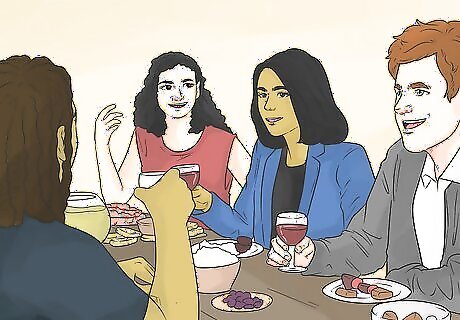
Invite people to do things with you. Another way to avoid being left out is to take the initiative and invite people to do things with you. Invite your friends to meet you at the mall or to go see a movie with you over the weekend. Or, throw a party and invite everyone, even those who have excluded you in the past.
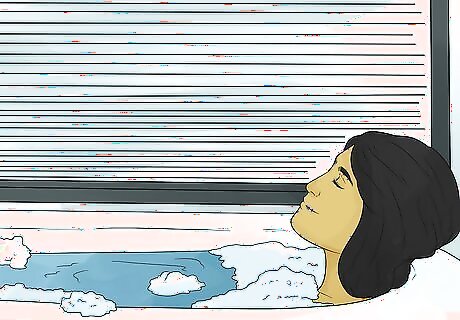
Enjoy your alone time. It is hard to be left out, but sometimes having time to yourself is a luxury so try to enjoy it if you can. If you are left out and you don’t have anything else to do, then try to do things that you really want to do on your own. For example, you can read that book you have been dying to check out, finish drawing a self-portrait, take a long bubble bath, or watch one of your favorite movies.













Comments
0 comment